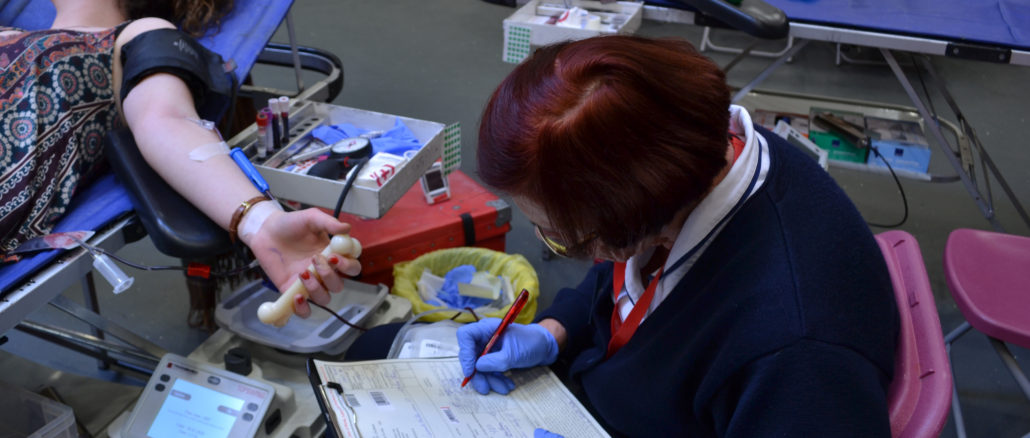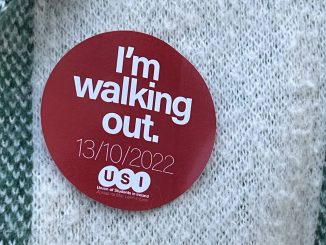
[dropcap]One[/dropcap] in four of us will need a blood transfusion in our lifetime. Yet the number of new blood donors coming forward is decreasing while the average donor age is increasing, according to worrying statistics released by the Irish Blood Transfusion Service(IBTS) as part of their #MissingType campaign.
Following the 21 percent decrease in new blood donors last year compared to 2010 figures, the IBTS aim to recruit 8,000 more donors before the year is out.
While the IBTS suggest in their report that a possible barrier for new donors is an “increasingly busy and digital world”, would any of us accept this as a plausible excuse if there was no supply when we needed it most?
If the prospect of saving lives isn’t rewarding enough, perhaps knowing the beneficial factors blood donation has on the donor themself could boost numbers.
Did you know that regularly donating blood helps blood flow? While he is not certain on the long term effects associated with better blood flow, Dr. Phillip Christopher, director of the Loyala University health system says donors are: “less likely to get heart attacks, strokes and cancers”.
A blood donor loses about a quarter of a gram of iron per unit of blood during each donation which is actually good for their health. The iron is gained back over a week of eating and is regulated efficiently reducing iron overload and in turn the risk of illness’ such as cirrhosis, liver failure and even heart abnormalities.
In addition, this regulation of iron levels has anti-cancer benefits as lower iron levels suggest lower risk of cancers. Regular blood donation also promotes weight loss which would reduce obesity levels and the health risks that come with it.
More importantly, over one thousand people require blood donations each week in order to survive and lead normal healthy lives. We need 3,000 donors per week in ireland yet only 6 per cent of the Irish population donate each year.
“Whether it is patients receiving treatment for cancer, blood disorders, after accidents or during surgery or women who lost blood in childbirth, blood is an absolutely essential part of modern healthcare,” explains the IBTS.
New mother Eva received a blood donation after childbirth. Telling her story on giveblood.ie, she shared the shock she felt when she realised there are only four days of her type of blood in supply at the moment which led her to question; ‘what if there was none in ‘my’ hour of need?’.
This prospect is becoming more likely and as IBTS stated: “Blood transfusions save lives and transform health for millions across the world. But blood transfusions cannot happen if people do not give blood.”
Katie Gallagher
Photo Credit: Laura Horan




Leave a Reply